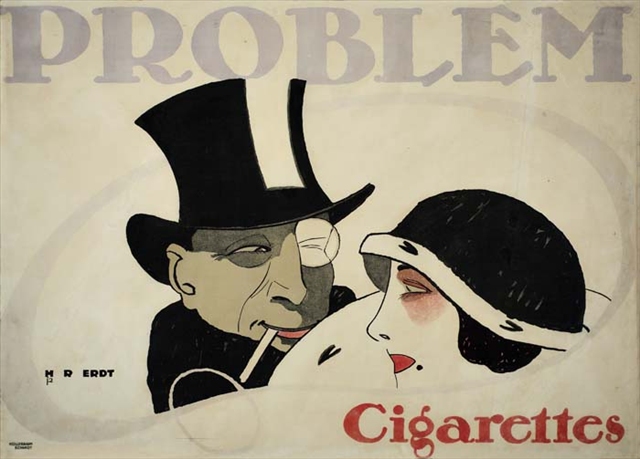
The Thammasat University Libraries have acquired a new book about how the tobacco industry works to make countries less willing to decrease tobacco use. Tobacco Control and Tobacco Farming: Separating Myth from Reality is edited by Wardie Leppan, Natacha Lecours and Daniel Buckles, specialists in agriculture, health issues, and tobacco control. The TU Libraries own a number of books about tobacco control, a field of international public health science, policy, and practice essential because of the widespread sickness and death caused by tobacco use. The World Health Organization has issued a Framework Convention on Tobacco Control to deal with some of the problems.
Tobacco Control and Tobacco Farming points out that tobacco companies often alarm farmers into thinking that any measures restricting tobacco growth will necessarily hurt them. In fact, farmers have a choice of many other productive crops to grow, apart from tobacco. Policies that help public health are cost-efficient for every country, since fewer people get ill with costly diseases such as cancer, emphysema, and other tobacco-related ailments. Some small farmers think of growing tobacco as a way to make lots of money, but in reality the industry controls the profits any farmer can receive from the crop. Farming tobacco requires a great deal of hard work, with bad results for the environment, health, and society. Tobacco plants take most of the nutrients from soil and require pesticides. Tobacco growing areas are often deforested. Farmers who grow tobacco must breathe dangerous smoke and dust when the tobacco leaves are dried, in addition to pesticides. Often they end up owing money to tobacco companies, instead of profiting over the long run. In a preface, Ahmed E. Ogwell Ouma, regional adviser for tobacco control in the WHO Regional Office for Africa even refers to the bondage of tobacco farming, comparing it to slavery.
In poorer countries where labor is cheap and few environmental and labor laws exist, workers sometimes suffer because of the dominance of tobacco crops. By contrast, in countries such as Bangladesh, Brazil, and Kenya, successful alternatives have been farmed, including bamboo, which are better for public health and the environment. Tobacco Control and Tobacco Farming also notes that worldwide, tobacco use is still widespread.

Thailand and tobacco control.
In January, The Nation reported that tobacco farmer associations were protesting a proposed law to increase the minimum age of cigarette buyers from 18 to 20, and ban the sale of cigarettes without packets as well as cigarettes displays in stores. Dr. Rajata Rajatanavin, Minister of Public Health, defended the bill, saying:
Research shows if we can prevent children from smoking, we will be able to save Bt156,000 in medical costs and economic losses [per person].
Any such law depends on enforcement and in Thailand, enforcement is very lax indeed. Although smoking is officially banned on public transportation, it is common to see public bus drivers smoking in their air-conditioned vehicles with closed windows, exposing riders to cigarette smoke. Thammasat University students can often be seen outside buildings on Tha Prachan campus, smoking. None seem to have any idea of the effects that cigarettes may have on their health in future years. Just across the river at the Siriraj Hospital, cancer wards can be visited. If TU students saw the physical suffering and family tragedies caused by diseases linked to smoking, they might reconsider their behavior.
According to The Nation, last year more than 12 million Thai people smoked cigarettes and annually around 50,000 people die of smoking-related diseases. If a group of 50,000 people suddenly dropped dead in Thailand, people would notice and try to do something to prevent this tragedy. Yet smoking deaths are accepted as natural, to the point where even university-educated young people imitate the ignorance of the uneducated, who never learn about these dangers until it is too late.

Hope for the future.
One possible way to improve matters is ASEAN funding. Thai Health Foundation Promotion, which receives around three billion baht per year from alcohol and cigarette taxes, is seen as a model for disease prevention and tobacco control. At the 2014 Asean Regional Workshop on Sustainable Funding for Tobacco Control, Deputy Public Health Minister Somsak Chunharas warned that Indonesia, the Philippines and Malaysia faced medical expenses considerably higher than the taxes they earn on tobacco products. Such taxes are only natural, Dr. Bungon Rittipakdee of the Southeast Asian Tobacco Control Alliance pointed out, following the principle that the polluter must pay.
More efforts needed.
In 2009, Thailand’s Action on Smoking and Health Foundation won an international award for tobacco control. The foundation designed pictures showing the health effects of smoking, to be placed on cigarette packets. Dr. Prakit Vathisathokit, Secretary General of the foundation, explained:
The pictures we use on cigarette packets were of patients suffering from diseases related to smoking. We tested these pictures on smokers and nonsmokers and selected the ones that had the most effect. We would be happy to send these pictures to other countries as well.
Laws continue to be passed, such as last year’s Ministry of Commerce decree banning the import of hookah and electronic hookah or electronic cigarette products into the Kingdom:
It is agreed that hookah and electronic hookah or electronic cigarette products are prohibited from being imported into Thailand as they harm public health, society, national security, peace, and morality.
Yet a 2012 article, Current Situation and Future Challenges of Tobacco Control Policy in Thailand, published in the journal Tobacco Control, showed that the situation is complex. The authors, Drs. Rassamee Sangthong, Wit Wichaidit, and Chittawet Ketchoo, concluded:
In Thailand, the prevalence of smoking has steadily declined over the past 20 years, suggesting an effective tobacco control policy. However, the prevalence has recently stabilised and youth smoking now appears to be on the rise. Tobacco use is the third highest risk factor contributing to the burden of disease in the country. This is an issue of concern and led to the present review of tobacco control measures in Thailand. The present evidence-based review shows that Thailand’s tobacco control measures are relatively strong and comply well with the WHO Framework Convention on Tobacco Control in terms of taxation, advertisement through popular media, and warning labels on cigarettes and other tobacco product packages. However, challenges remain in dealing with highly prevalent roll-your-own cigarettes, strict prohibition of tobacco sale to underage youths, household smoking, illicit trade of tobacco products, viable tobacco crop diversification for domestic tobacco growers and liability. If these challenges are met, the prevalence of tobacco consumption could possibly be further reduced.

(all images courtesy of Wikimedia Commons)
